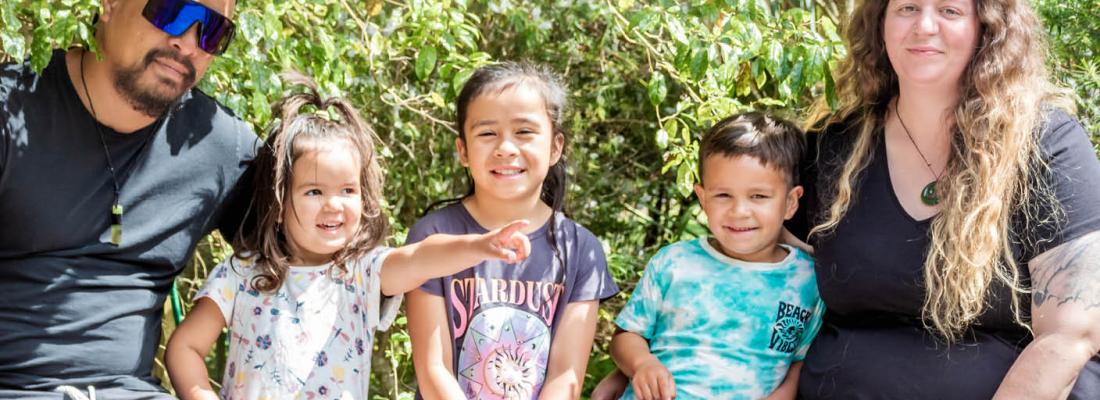Helping Families Thrive

The Salvation Army’s parenting programme, Building Awesome Whānau, is a face-to-face group programme that is helping caregivers find their feet as parents, break cycles of intergenerational trauma, set boundaries and learn healthy communication skills.
Designed by The Parenting Place for those raising children from 2–13 years old, Building Awesome Whānau is delivered over six weeks in two-hour group sessions. Caregivers are guided through content that includes topics around aroha and connection, values and tūpuna (ancestors and grandparents), the importance of the whare (home) and healthy communication.
This content is delivered through a Hauora Māori (wellbeing principles) lens via videos, writing exercises and activities. New Zealand comedian Pio Terei presents the video content in a relatable and humorous way. Parents are guided to reflect on their past, identify areas for change and realise their dreams for their family.
Laura McCabe has been facilitating the programme in Tauranga for two years. She loves seeing parents have ‘aha’ moments during the classes.
‘You see that “aha” moment happen when we play the video about communication. They also have “aha” moments when it comes to discussing parenting styles. We talk about a sergeant major, a jellyfish, an absent parent and a parenting coach. The parenting coach style is what we want to guide people towards adopting. We liken it to a sporting coach who is there to encourage, help along and give guidance on proper techniques.
‘One mum told me that she appreciated being able to share in a place of safety and to meet like-minded people with similar thoughts, feelings and experiences. It’s not a parenting programme that tells you how to parent. Instead, it asks people to reflect on how they were raised and helps to break any cycles of intergenerational trauma.
‘My favourite takeaway is “Nanny’s Rule”. This tells children, you need to do the things you have to do before you can do what you want to do. It’s a good way of saying no while saying yes. For example, if a child wants to watch YouTube for half an hour, they are asked what they need to do first, such as getting out of their school uniform, putting their lunchbox away and getting themselves a snack.’
‘Parents are guided to reflect on their past, identify areas for change and realise their dreams for their family.’
At Royal Oak in Auckland, Rose Tuaine and Nofoa Faimalo have run a mixed-gender group with great success.
‘One couple who had been struggling with addictions and had lost care of their children have made a lot of changes since doing the course and are now setting goals, keeping up with routines and having visitations with their children,’ says Rose. ‘It’s helped them a lot. The mother commented that the course gave her new hope and new tools, and that she’s learned to be gentler in her communication with her children.’

